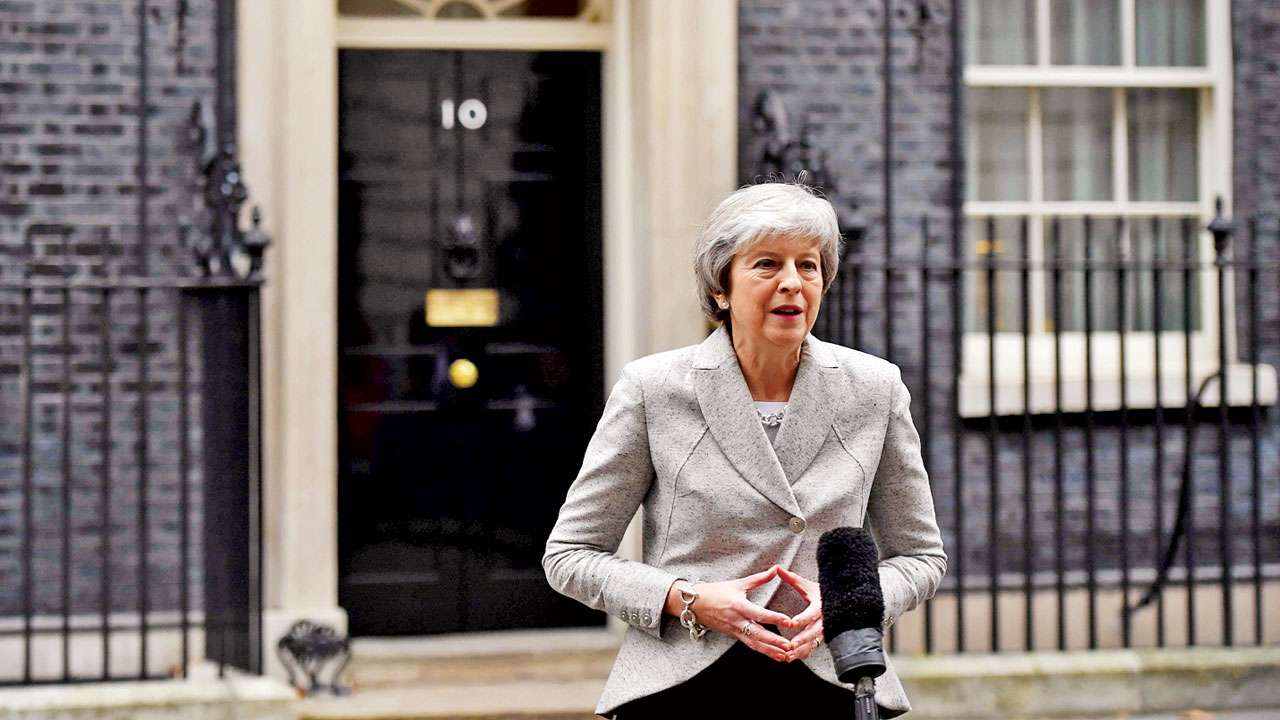
As the Brexit negotiations head towards an endgame, there is turmoil all around. British politics is on knife’s edge with the future of Prime Minister Theresa May and in some ways the entire Conservative Party on the line. The Opposition, too, is struggling to put its own house in order and even the European Union is facing disunity within its ranks despite pretensions of a united front.
Last week, an agreement on the withdrawal deal was reached in principle by May and the European Union (EU) which included a £39 billion “divorce bill” and the controversial customs “backstop” which keeps the UK temporarily in the EU customs union so as to prevent the return of manned customs posts at the Irish border. However, the joint political declaration on future relations which is to be confirmed on Sunday is only temporary. It will be the 21-month transition period after Britain leaves the EU on March 29, 2019, that would see the finalisation of the binding agreement. And this has led to challenges from all sides.
May is struggling to finalise a Brexit deal to be agreed at this Sunday’s summit of European leaders even as she is under pressure from her own MPs not to cede any further ground in negotiations. For the time being, her threat is that she has managed to get the best possible deal from the EU and that it’s either this deal or no deal and, therefore, no Brexit that has secured her position. But there is a demand for more clarity on all sides of the British Parliament about the exact terms of UK’s future engagement with the EU if at all the Parliament is to support the deal.
Despite a number of resignations from her cabinet and backroom manoeuvring to topple her from No 10 Downing Street, May looks stronger today than she looked last week and that’s a tribute to her own political skills and quite an accomplishment under the present circumstances. Yet her critics remain unrelenting. One of her strongest detractors, Jacob Rees-Mogg, has made a case that the time has come for May’s detractors to push for a confidence vote in May or face the spectacle of her leading the Tories into the next election. But he has accepted that he doesn’t have the required threshold of 48 letters needed to trigger a contest for Tory leadership. Opinion polls are also underscoring that support for May is growing among the British populace which is looking for a speedy resolution of this crisis.
On the other side, the EU had to complete the text on future ties with the UK on Tuesday but several member states have raised objection, leading to a delay. Countries have highlighted several issues such as UK access to the EU single market, access to UK waters for EU boats as well as Gibraltar. Spain, which is worried about the future status of Gibraltar, has warned it will reject the draft Brexit withdrawal deal without a clarification of the text on future talks on the status of Gibraltar. France has raised concerns about fishing rights and nations as the Netherlands and Denmark, remain concerned about the potential competitive advantage to UK businesses over the European without the UK being tied to strict environmental regulations.
Despite these concerns, Brussels would be hoping that when it would come to the crunch on Sunday, all 27 member nations of the EU would sign up to the Brexit deal so as to avoid a situation where there is a no deal and further uncertainty haunts the region. And in some ways, it is in EU’s interest that the British Prime Minister gets her plan approved by the British Parliament. A domestic political crisis in the UK is not in EU’s interest at this critical juncture. May also wants to demonstrate that she is fighting hard to secure British interests. So in a way, both May and the EU are sailing in the same boat.
As Britain struggles with its future relationship with the EU, its outreach to nations like India has been growing in order to seek out new avenues for economic relationships. British officials have been signalling that Brexit could augur well for trade ties between India and the EU as the two nations would find it easier to conclude a free trade pact without the involvement of the entire panoply of EU member states.
The economic relationship between the UK and India certainly remains a robust one. While the two nations can look forward to a potential FTA, the negotiations can only proceed once the UK has put its own house in order. India will also be looking for concessions on Indian skilled labour accessing UK markets.
The challenge for the UK at the moment is to sort out its own internal deliberations on the future of its trajectory with the EU. New Delhi will assess its own future with the UK in light of the choices London makes with Brussels.
Author teaches at King’s College, London